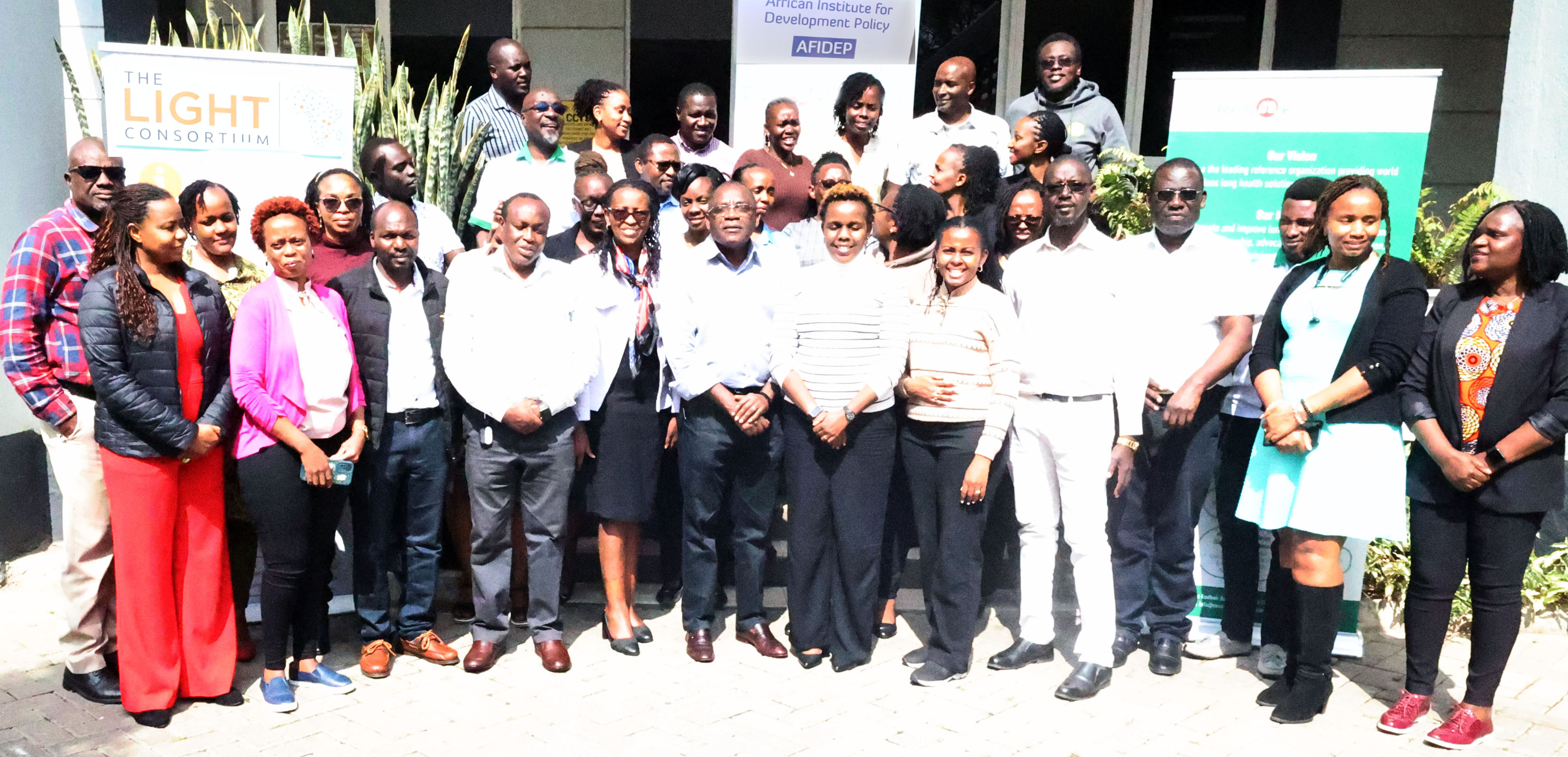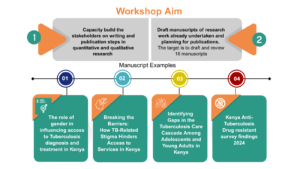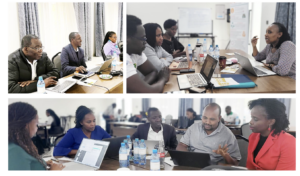News

One of the core outputs of the LIGHT consortium is capacity strengthening for individuals, institutions and multi-stakeholder networks in countries to produce, adapt, translate and use evidence, and manage research. In line with this, LIGHT partners in Kenya, AFIDEP and Respiratory Society of Kenya (ReSoK) are facilitating a scientific manuscript writing workshop in Naivasha, Kenya from 14–18 July 2025. Hosted by ReSoK, the workshop includes participants from the Ministry of Health’s Division of National Tuberculosis, Leprosy and Lung Disease Program (NTLD-P), County Government representatives, and key partners in lung health in Kenya including Amref Health Africa, Centre for Health Solutions – Kenya, Clinton Health Access Initiative, Kenya Medical Research Institute and Population Services Kenya.
The workshop was officially opened by Aiban Ronoh, Head Monitoring and Evaluation and Research at NTLD-P on behalf of the Head of NTLD-P program. He highlighted that research is an important focus area and shared the NTLD-P’s vision of developing a national, inclusive, and demand-driven tuberculosis (TB) research agenda.
As part of streamlining the implementation and dissemination of TB and Lung Health research in Kenya, NTLD-P spearheaded the formation of TB and Lung Health research taskforce in January 2025 where LIGHT partners (ReSoK and AFIDEP) are committee members.
The aim of this workshop is to:
- Capacity build the stakeholders on writing and publication steps in quantitative and qualitative research
- Draft manuscripts of research work already undertaken and planning for publications. The target is to draft and review 16 manuscripts
Prof. Jeremiah Chakaya, ReSoK’s Chief Executive Officer and Programme Team Lead at LIGHT Consortium, gave an overview of LIGHT`s research focus on gender and tuberculosis (TB). With men and adolescents/young adults having a higher burden of TB, and higher rates of undesirable treatment outcomes, age and gender-responsive TB prevention and care policies and strategies are required to accelerate ending TB. Prof. Chakaya further stressed the importance of scientific research and the purpose it serves in advancing science and translation of policy and practice.
LIGHT Consortium`s Dr Beate Ringwald virtually conducted a sensitisation on publishing qualitative research findings. It was an interactive session with questions, for example, “How many quotes are considered too much?” reflexivity, trustworthiness of research data, and highlights of common mistakes in documentation of qualitative research.

Intensified research and innovation is the third pillar of the END TB Strategy and LIGHT strives to support the documentation of research, as well as bridging the evidence policy gaps through evidence informed decision making. We look forward to a busy but fulfilling week as we advance TB Research Capacity in Kenya!

The LIGHT Consortium aims to contribute to real-world change and leave no-one affected by TB in sub-Saharan Africa behind!
Learn more: https://light.lstmed.ac.uk/

